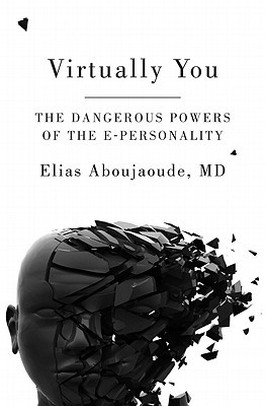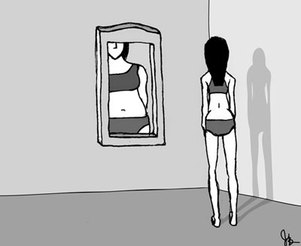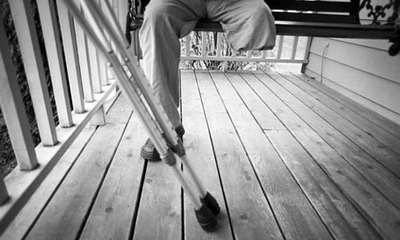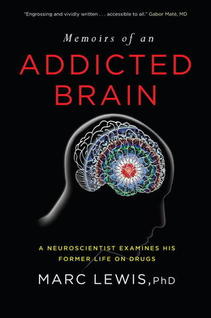
Recommended For:
Anyone who uses the Internet and social media.
 The Internet and social media have become an integral part of work, school, and general daily life for most people in developed nations. There is no doubt that these technological advances have come with benefits such as improving the efficiency of many tasks including researching and studying, helping to stay in touch with friends and family, and improving accessibility to a plethora of resources and information. However, the Internet may not be all it's cracked up to be, as we've begun to see with cases of cyber-bullying, online shopping and gambling addictions, and the rapid rise of screen time among children, teens, and adults alike over the last few years. In fact, psychiatrist Elias Aboujaoude, believes that the Internet, and our favourite chat rooms and social media sites, may actually be changing us for the worst and having a detrimental impact on our personality and our psyche. In his book Virtually You: The Dangerous Powers of the E-Personality, this idea is explored further using real patient cases and studies which highlight exactly how the online world affects our real life relationships, alters our perceptions of ourselves, our peers, and the world, and can significantly impact our mental health through affecting traits like impulsivity and narcissism if we lack awareness. Recommended For: Anyone who uses the Internet and social media.
0 Comments
 While eating disorders like anorexia may affect a seemingly small percentage of the population, they are extremely important to be aware of in practice as they can not only be associated with other medical and psychiatric conditions, but can increase a patient's morbidity and mortality. To get a better idea of what having an eating disorder is like, check out the interview (link below) with a real patient who has a longstanding history of anorexia. Not only does she provide powerful insight into her experiences with this mental health condition, but she also offers valuable advice on how medical professionals should and shouldn't handle patients with eating disorders. Lastly, the patient also stresses the recognition of eating disorders as a chronic condition and the importance of and need for treatment programs for adults who have in the past and still continue to struggle with body image and harmful eating and weight loss behaviours.
 Anxiety disorder and panic attacks, are quite prevalent within the population yet many with disabling anxiety are too often forced to either try and hide their mental health condition, or be faced with stigma and misperceptions held by their peers, their colleagues, and often society at large. As Scott Neumyer so clearly and profoundly iterates, "what makes anxiety disorders so difficult to pinpoint and so misunderstood is that anxiety is an incredibly unique emotion. No two people with an anxiety disorder are alike — there is no obvious wound or manifestation. Each victim experiences different symptoms, handles the situation differently, and internalizes the attack differently after it has passed." To get a better understanding of what it's like to live and more especially, to work with anxiety and panic attacks, check out the must-read eye-opening article "I Am Royce White: Living and Working with Anxiety Disorder." The article also includes an in-depth interview with pro-basketball player Royce White, shedding some light on his anxiety disorder and the requests he's made to his team and the NBA to better accommodate mental illness. In fact, White has recently been making headlines as he is one of the first professional athletes to not only be open about his mental health, but also is one of the first to really advocate for and demand acknowledgement of mental illness among players in addition to pushing for better support and healthcare while playing professional sports Today is Bell Let's Talk Day! Don't forget to show your support, join the conversation about mental health, and help break down the barriers to diagnosis and treatment.
1 in 5 Canadians will experience a form of mental illness at some point in their lives so take a moment to tweet, text, call, or share the Let's Talk photo on Facebook to help spread awareness and raise money for this important cause.  Body Identity Integrity Disorder, while not an official DSM-5 diagnosis, is described in the DSM as a condition that "involves a desire to have a limb amputated to correct an experience of mismatch between a person's sense of body identity and his or her actual anatomy". Though seemingly similar to the DSM diagnosis of Body Dysmorphic Disorder, BIID is quite different in that the concern is not on the limb's appearance. While difficult for many to comprehend, it has been documented in the literature though unsurprisingly is surrounded by lots of controversy, and so whether BIID makes it into the next version of the DSM or not largely depends on further research. In the meantime, to better understand the condition and see what it's like from a patient's perspective, learn about the ethical issues involved with voluntary amputations, and get some insight into the current science and research behind BIID, check out the link below. "This Is What It's Like To Be At War With Your Body" by Anil Ananthaswamy (Medium)  Interested in art or history? Take a look at this article offering an extremely interesting look at the history of mental illness through a number of well known paintings (including those by Vincent van Gogh). "A Brief History of Mental Illness in Art" by Ferris Jabr (Scientific American)  Looking for a book to catch your attention, but also be informative and something you can learn from? If so, check out Memoirs of an Addicted Brain - A Neuroscientist Examines His Former Life on Drugs, the perfect blend of educational, engrossing, and immensely fascinating. Written by a neuroscientist from Canada, Dr. Marc Lewis shares his past experiences with drugs all the while explaining the science behind how each drug works and affects one's brain. A truly interesting, illuminating and enjoyable read. Recommended For: Those interested in substance use and addiction, psychiatry, or neuropharmacology.  Movies don't usually portray psychiatric wards and hospitals in the most accurate light. So if you're looking to find out what life is really like on an inpatient psychiatric ward, especially from a patient's honest perspective, check out the article below: "Life in a Psychiatric Hospital - Everything Pop Culture Tells You About Inpatient Treatment is Dangerously Wrong" by John Hochschartner (Slate) |
Description
Supporting and enhancing students' and health professionals' knowledge and understanding of mental health and psychiatry
Archives
June 2017
Categories
All
|